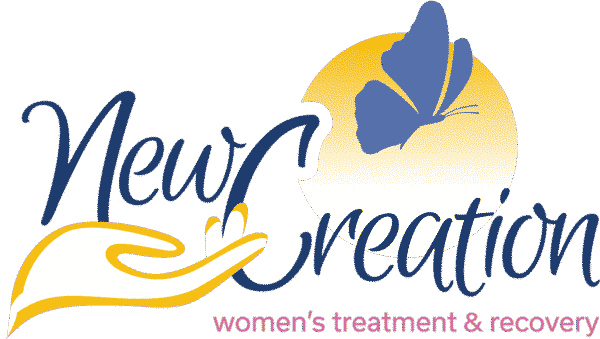Post-traumatic stress syndrome (PTSD) is much more common than many people may realize. This is especially true for women. According to the U.S. Department of Veterans Affairs (VA) and the National Center for PTSD, “Women are more likely to develop PTSD than men. About 8 of every 100 women (or 8%) and 4 of every 100 men (or 4%) will have PTSD at some point in their life. This is in part due to the types of traumatic events that women are more likely to experience – such as sexual assault – compared to men.” The good news is that psychotherapies like cognitive-behavioral therapy (CBT) have been shown to help women heal from PTSD.
A Better Understanding of Trauma and PTSD
Trauma and PTSD are underlying issues that often cause many negative behaviors, including those associated with mental illness and addiction. Issues of PTSD often happen much later than the traumatic event.
According to the National Institute of Mental Health (NIMH), “Symptoms of PTSD usually begin within 3 months of the traumatic event, but they sometimes emerge later. To meet the criteria for PTSD, a person must have symptoms for longer than 1 month, and the symptoms must be severe enough to interfere with aspects of daily life, such as relationships or work. The symptoms also must be unrelated to medication, substance use, or other illness.” Because of the late onset of the symptoms, many people go a long time without realizing that they are struggling with PTSD. CBT can help make these essential realizations happen.
A Better Understanding of CBT
CBT is one of the most common forms of psychotherapy being used today. The reason for this is that it has been shown to be highly effective in treating many different types of mental health and addiction issues. It has been shown to be so effective that it now holds the moniker “evidence-based.”
CBT helps individuals get to the underlying issues regarding how they negatively view themselves and the world around them. According to the peer-reviewed thesis Cognitive Behavior Therapy by Doctors Chand, Kuckel, and Huecker, “The idea for developing this form of psychotherapy took root when Aaron Beck began to notice that his patients with depression often verbalized thoughts that were lacking in validity and noted characteristic ‘cognitive distortions’ in their thinking. His empirical observations led him to start viewing depression not so much as a mood disorder but as a cognitive disorder.” These “cognitive distortions” can manifest due to PTSD.
How Can CBT Help Women Heal From PTSD
CBT has now been shown to be specifically effective at helping people heal from PTSD. According to the clinical journal Behaviour Research and Therapy, “A substantial number of randomized controlled trials (RCTs) have established the efficacy of trauma-focused cognitive behavioral treatments (TF-CBT) in posttraumatic stress disorder (PTSD). These RCTs have shown very large effect sizes in treating PTSD symptoms and associated symptoms of depression and anxiety for a range of TF-CBT programs.”
CBT can help women connect with the thoughts (cognitions) that cause their negative feelings (emotions) and often lead to toxic choices (actions and behaviors). Once these thoughts are uncovered, they can be worked on and worked through so that negative emotions are less frequent and negative behaviors can be addressed. The efficacy of CBT is also often bolstered when used with other treatment tools.
Other Means, Methods, and Modalities That Help Women Heal From PTSD
There are many other forms of therapy and holistic healing that can help women heal from PTSD. This includes other psychotherapies like dialectical behavior therapy (DBT) and group therapy, experiential therapies like art, family, and outdoor therapy, and holistic methods like yoga and meditation.
Meditation can be particularly helpful in helping women heal from PTSD because it offers a vast array of physical, mental, emotional, and spiritual benefits. According to the International Quarterly Journal of Research in Ayurveda (AYU), “Research has confirmed a myriad of health benefits associated with the practice of meditation. These include stress reduction, decreased anxiety, decreased depression, reduction in pain (both physical and psychological), improved memory, and increased efficiency. Physiological benefits include reduced blood pressure, heart rate, lactate, cortisol,” and the list goes on and on.
Whole Mind-Body Healing With New Creation Recovery
Here at New Creation Recovery, we understand that recovery cannot just happen in one aspect of our lives. Each part of the whole must be healed. This includes our mind, body, and spirit.
Our CBT offerings at New Creation Recovery have been shown to help women (and men) heal from their issues of trauma and PTSD so they can go on to live the lives they both desire and deserve. Recovery is possible. The key is to take the first step and reach out for help. We’ll help with all of the steps that come after.
Women with PTSD have commonly lived with its negative symptoms for a long time. The good news is they don’t have to anymore. Women can heal from issues of trauma and PTSD at New Creation Recovery with therapies like cognitive-behavioral therapy (CBT). If you feel like you or a loved one is struggling with issues of addiction, mental illness, or co-occurring disorders, we can get you on the positive path toward long-term recovery right away. You can take the steps to move forward and find peace after trauma. For more information about CBT and its benefits for those with trauma and PTSD, please reach out to New Creation Recovery today at (877) 868-5730.



